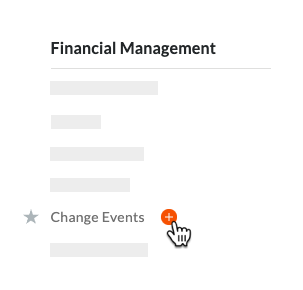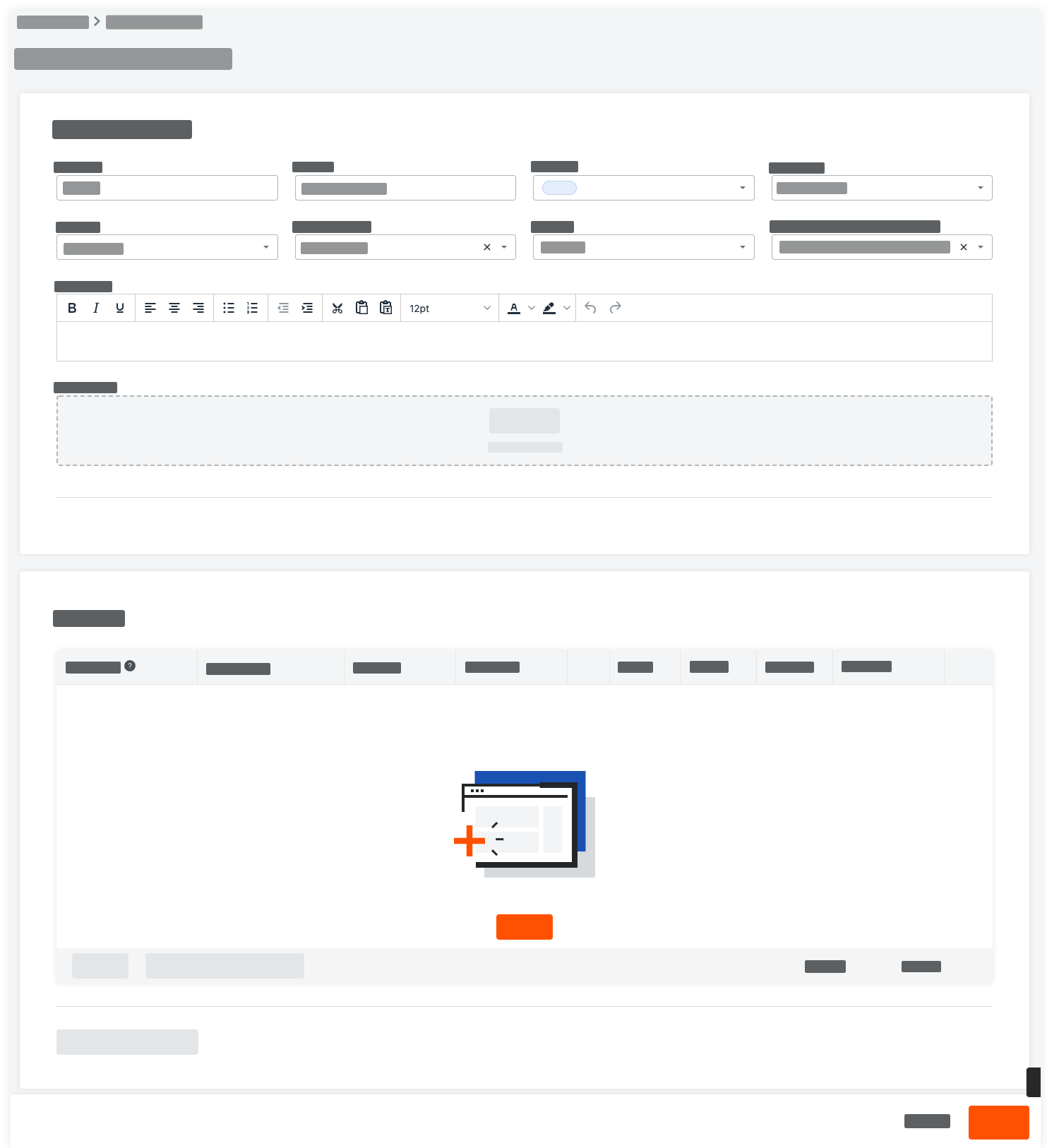Create Change Events
Objective
To create a new change event using the project's Change Events tool.
Background
A change event is any change that affects a construction project's original scope. It can also be an event that alters the project schedule or leads to unexpected costs. In Procore, creating a change event helps your project's team and stakeholders prepare for potential cost changes before they become actual costs.
Example 1: Create a Change Event to Establish a Change Order
A change event can stem from several sources and start the change order process. Examples include:
- Accommodating an owner's request.
- Accounting for a design flaw.
- Addressing an unforeseen issue caused by a vague document or specification.
Example 2: Create a Change Event to Document a Backcharge
A change event can also document a project condition that led to a backcharge. A backcharge recovers unexpected costs from corrective work a party was contractually bound to do. Users can create a change event to document the conditions that led to the backcharge. Common scenarios include:
- Repairing something that a subcontractor damaged.
- Cleaning up an area that the subcontractor was obligated to clean.
- Replacing defective materials provided by the subcontractor.
- Reinstalling an incorrect installation performed by a subcontractor.
- Bringing a neglected issue into compliance with safety regulations.
- Providing unforeseen equipment rental and use costs.
After a change event is created, you can then send a Request for Quote (RFQ) to your subcontractors. Subcontractors can then respond to RFQs (or a general contractor can enter a response to an RFQ on the subcontractor's behalf). The RFQ response includes all required documentation for the change event's potential cost and schedule impact. Once your subcontractor's RFQ responses are reviewed, your project team has the information needed to create a Potential Change Order (PCO).
Things to Consider
- Required User Permissions:
- 'Standard' level permissions or higher on the project's Change Events tool.
- Limitations:
- A change event 'Number' is limited to a maximum of ten (1) characters.
Prerequisites
- Add the Change Events tool to the project. See Add and Remove Project Tools.
- Configure the tool's settings. See Configure Settings: Change Events.
Steps
Tip
Check out Change Events - Videos for video walkthroughs of these steps and more.Create a New Change Event
- Choose from these options:
- Open the Project Tools menu and click Create
 .
.

OR - Navigate to the project's Change Events tool. Then click the Create button.

- Open the Project Tools menu and click Create
- In the 'New Change Event' page, enter the following:
- Number
Procore automatically assigns new numbers to change events in ascending sequential order.Notes
- The default numbering scheme is 001, 002, 003 and so on.
- You can customize the numbering scheme for the change events on your project at any time by typing an alphanumeric numbering scheme over the default value. For example, CE001, CE1000, CE-1000, and so on.
- After customizing the numbering scheme, Procore uses it to assign new numbers to subsequent change events.
- The change event number is limited to a maximum of ten (10) characters.
- Title
Enter a descriptive title for the change event. - Status
Select a status for the change event from the drop-down list.Tip
Which statuses are available for change events? For details, see What are the default statuses for change events in Procore?. Your company's Procore Administrator can also customize the options in this list. See Customize Change Event Statuses. - Origin
Select the Procore tool and item from which your change event originates. - Type
Select the change event type. Your options include: TBD, Allowance, Contingency, Owner Change, or Transfer. See Set the Default Change Management Configurations. - Change Reason
Select a reason for the change from the drop-down menu. See Set the Default Change Management Configurations.
Note: When you enable the Change Events - Empty Default "Change Reason" feature in Procore Explore, the change reason for Change Events is empty by default. - Scope
Select one of the available scope options from the list: In Scope, Out of Scope, or TBD. See What are the default scope options for change events in Procore? - Expecting Revenue
Select YES or NO. If YES, select one of the options from the Line Item Revenue Source field. If NO, Revenue ROM amounts will be set to zero (0). - Line Item Revenue Source
Select one of the options from the list: Match with latest cost, No revenue expected, or Quantity x Unit Cost. - Select the contract that contains the markup settings that you want to use to calculate the markup on the Rough Order of Magnitude (ROM) values. Procore automatically selects the contract with the lowest number.
- Description
Describe the event that may result in a change in costs. - Attachments
Attach any relevant files.

- Number
- Click Save.
Procore saves the new change event.
Add Change Event Line Items
Note
If the budget code was not included on the project's original budget, a confirmation message appears for you to confirm that you want Procore to add these line items to the budget. Procore adds the new line item(s) to the project's budget and a question mark ![]() appears next to each partial budget line item. To learn more, see What is a partial budget line item? and Add a Partial Budget Line Item.
appears next to each partial budget line item. To learn more, see What is a partial budget line item? and Add a Partial Budget Line Item.
Update Production Quantities
Next Step


